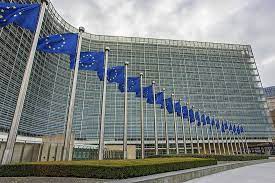As a better alternative to China’s Belt and Road Initiative, the European Commission announced on Wednesday a plan to invest 300 billion euros globally in infrastructure, digital, and climate initiatives by 2027.
The Global Gateway initiative aims to strengthen Europe’s supply chains, boost EU trade, and aid in the battle against climate change by focusing on digitalization, health, climate and energy, transportation, education, and research.
China launched its Belt and Road initiative in 2013 to improve commercial relations with the rest of the globe, and it has since spent extensively on infrastructure development in dozens of nations across the world.
However, EU officials claim that Beijing’s financing terms are frequently unfavorable, opaque, and make some poorer countries, particularly in Africa, debt-dependent on China.
“Indeed, countries… require better and different offerings (in response to China’s effort),” European Commission President Ursula von der Leyen said at a press conference announcing the EU scheme, which she dubbed “a true alternative.”
EU funds will come from EU institutions, governments, EU financial institutions, and national development banks in the form of grants, loans, and guarantees.
“To reduce the danger of debt hardship, the EU will lend its financing on fair and favorable terms,” the Commission said in a statement.
“Good governance and high standards projects might be poorly planned or constructed, left incomplete, or exploited to fuel corruption if there is not sufficient transparency. This not only stifles growth and deprives local populations, but it also generates dependencies, which can limit a country’s decision-making abilities ” the Commission stated.
The Global Gateway strategy, according to the Commission, will strive to create linkages with other countries without fostering dependency.
The Commission stated, “It will focus on physical infrastructures, such as fiber optic cables, clean transport corridors, and clean power transmission lines, to boost digital, transport, and energy networks.”
According to the Commission, by assisting other nations, the EU will promote its own interests and strengthen its supply chains, which were exposed as vulnerable during the COVID-19 pandemic.

















